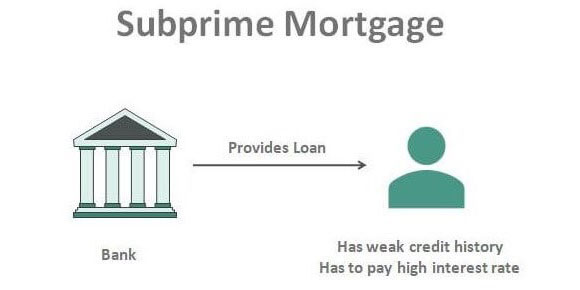In the coming years, a significant transfer of wealth is expected, with baby boomers set to pass down trillions of dollars to their heirs. This scenario presents a dual challenge. The loss of a loved one is emotionally heavy on one’s side. There are other tasks, such as dealing with an unexpected inheritance. Though the anticipated monies from inheritance could be overwhelming, there is a need to undertake cautious planning.
If you wonder, “What should I do with the inheritance money?” know that you are not alone. Many Americans face this question, and without a thoughtful strategy, it's easy for this money to disappear quickly. To ensure you make the most of your inheritance, it's essential to consider factors like inheritance tax, the possibility of an inheritance advance, and the implications of inheritance and divorce.
Here are three crucial financial steps to take with your inheritance, designed to help you manage this newfound wealth responsibly and effectively. This guide aims to provide three clear, straightforward advice to guide you through this complex financial situation quickly and confidently.
Smart Investment Strategies Using the Inheritance

Investing your inheritance towards your future, particularly your retirement, is a wise decision. Contributing maximally to 401(k) or IRA accounts, especially over 50, is a good beginning. It provides you with insurance for the future and benefits from inheritance tax.
In case your contributions to the retirement account are at their limit, there are other avenues you can consider to invest in. The choice is a reliable one. They ensure that your investments are managed by professionals and diversified across several securities, such as stocks and bonds, that help lower risk. This is a sensible approach for those taking inheritance advance.
Another option is ETFs, which are like mutual funds but have increased liquidity. They are the best to use in long-lasting strategies that provide diversification and possibly more significant returns. Liquidity and ease of management make ETFs a suitable investment should you handle inheritance and divorce proceedings.
Index funds, whether mutual funds or ETFs, track specific economic sectors and aim for broad returns. Popular choices include the S&P 500 Index and the Nasdaq 100. These funds can support an inheritance-investing strategy, offering stability and growth potential.
Investing in individual stocks is riskier, with high growth potential and significant loss risks. Allocating a small percentage, like 5%, of your portfolio to individual stocks is advisable, balancing it with more stable investments like bonds and mutual funds.
Bonds offer a secure investment route with predictable returns. They're suitable for short-term needs or as a balance against volatile assets in your portfolio, a consideration to remember when dealing with inheritance and divorce.
Real Estate Investment Trusts (REITs) allow investment in commercial real estate without direct management. They can be a source of steady profit from your inheritance advance. Lastly, cryptocurrency is a speculative and volatile investment. Allocating a minimal portion of your portfolio to such assets is advisable due to their unpredictable nature.
Remember, managing a diverse portfolio on your own can be challenging. Seeking advice from a financial advisor is beneficial, especially if you're new to investing or dealing with complex situations like inheritance and divorce.
Eliminate High-Interest Debt
When you've set up an emergency reserve and maximized your employer's contribution match in your 401(k), using your inheritance to pay off high-interest debt is wise.
Tackling debts like credit card balances or loans with steep interest rates, for example, those charging around 20% APR, is an intelligent move. Clearing this kind of debt offers immediate and significant benefits. It's a safe investment in your financial well-being. You'll avoid a hefty amount of interest over time, which allows you to redirect these savings into more saving and investment activities.
However, it's crucial to modify your spending habits. Commit to only using your credit card for expenses you can fully pay off when your bill arrives. This practice prevents the accumulation of additional consumer debt.
When managing an inheritance, it's essential to consider factors like inheritance tax and the implications of inheritance and divorce. These elements can significantly influence your financial planning. An inheritance advance, for instance, might be an option to consider if you need funds before the inheritance process is completed.
Remember, each financial decision, especially those involving inheritance, should be made with a thorough understanding and careful consideration of all related aspects, including inheritance tax, inheritance advance, and the impact of inheritance and divorce on your financial situation.
Seeking Guidance from Professionals for Managing Inheritance

Making wise choices with a large inheritance is crucial. Financial planners, CPAs, and estate planning attorneys can be helpful. These professionals help people unfamiliar with large sums of money make informed decisions.
Financial professionals are adept at setting realistic financial goals and helping you achieve them swiftly. This guidance is precious if you're inexperienced in managing significant financial resources. They provide clarity and direction, ensuring that your inheritance is utilized in the most efficient way possible.
When a financial planner is already involved in overseeing the estate you've inherited, it may be wise to continue with their services for your inheritance. Their familiarity with the estate's assets offers a unique advantage. This continuity not only ensures a smoother transition but also gives you the comfort of relying on someone with a proven track record in wealth management.
It's essential to understand the implications of inheritance tax and plan accordingly. A skilled financial advisor can offer strategies to minimize the impact of taxes on your inheritance. Furthermore, if you're considering an inheritance advance, a professional can guide you through the process and help you understand the terms and potential repercussions.
For those navigating the complexities of inheritance and divorce, seeking professional advice is crucial. Financial experts can provide insights into how inheritance is treated in divorce proceedings and help protect your interests.
Final Thought
In summary, effectively managing an inheritance involves strategic investments in diverse financial instruments, paying off high-interest debts, and adjusting spending habits to prevent future debt accumulation. Seeking advice from financial experts like planners, accountants, or lawyers is crucial to knowing your way out of the turbulence of inheritance tax and other related issues. This approach ensures that the inheritance is a stepping stone to long-term financial security and growth.











